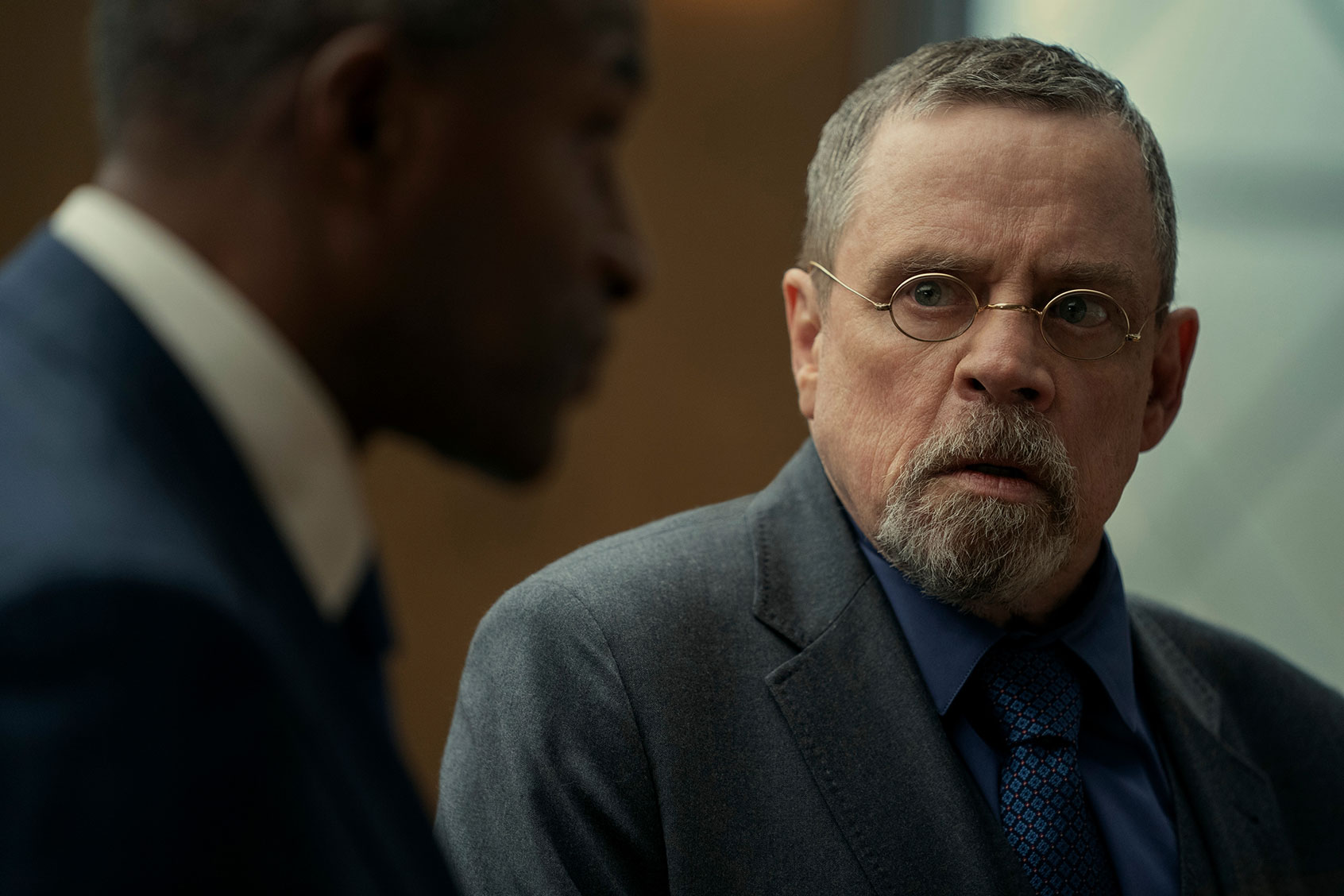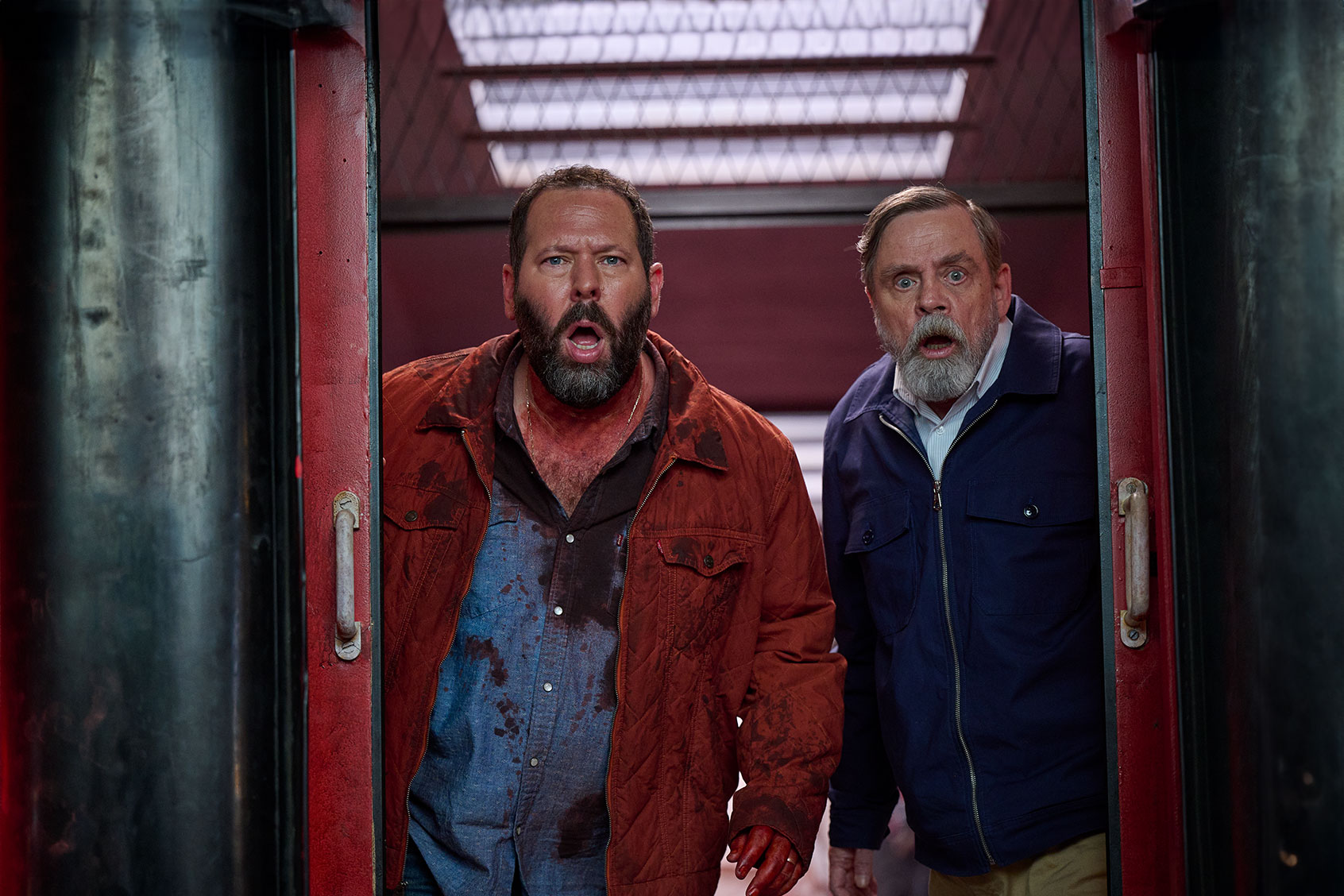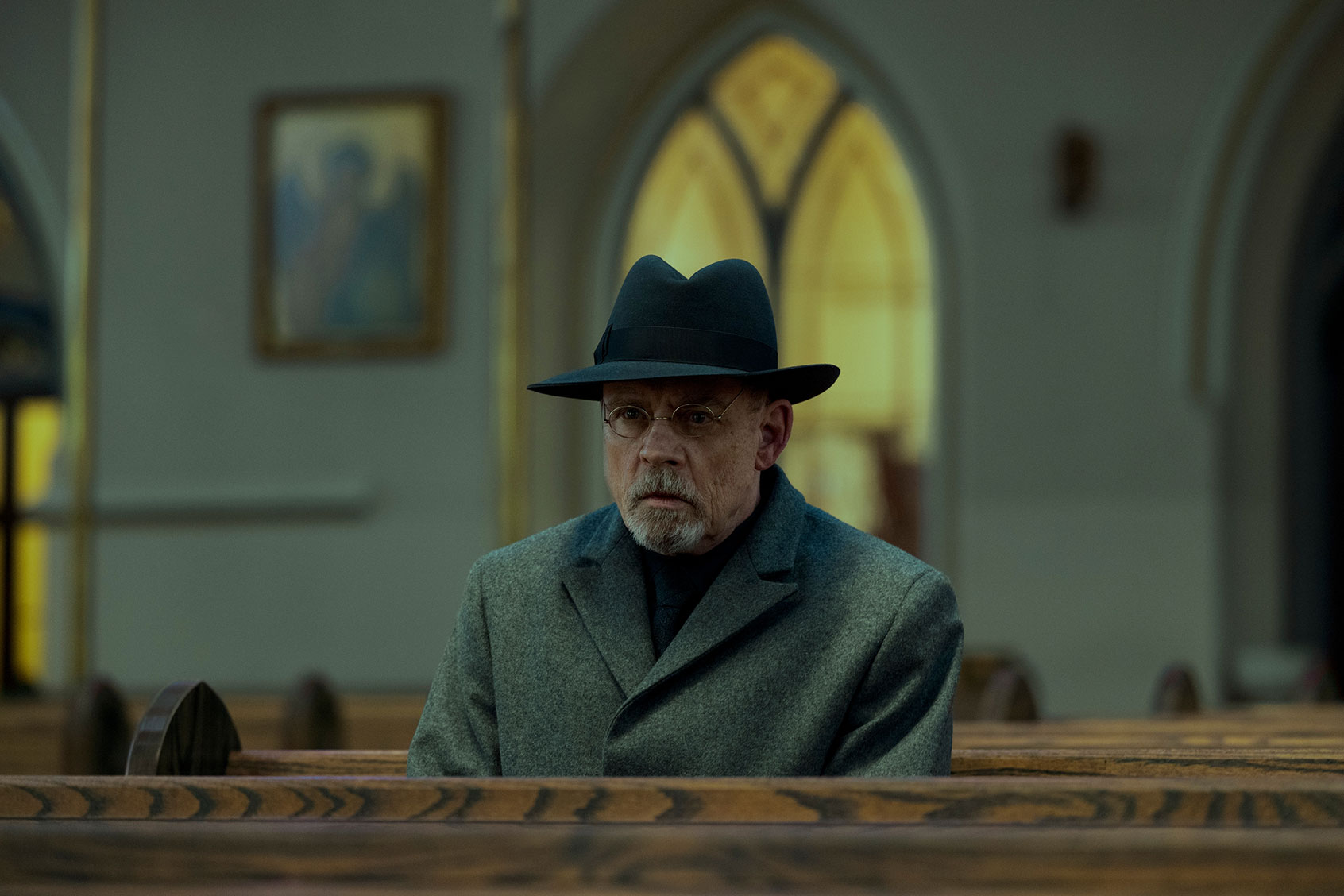Remarkably few of us experience life like Mark Hamill does. By this, we mean an existence informed by a recurring role in a handful of films that, for millions of people around the world, has frozen him in time and space – deep, deep space.
His life is informed but not shaped by having played Luke Skywalker — informed, but not formed around. That’s the difference between Hamill and other actors seen by the public as a fictional persona they played decades ago – or worse, those performers who resent that double-edged sword.
On one side of that blade, they’ll live on forever via action figures and any kind of paraphernalia one can imagine.
Cutting in the opposite direction is the tendency for that immortality to rob an actor of being seen as anything else.
Where others might have taken out those frustrations on reporters or children – especially the ones who grew up, but never outgrew that hero worship – Hamill exercised the wisdom of a Jedi and took his career in the opposite direction. Seeing him in Mike Flanagan’s “The Fall of the House of Usher,” a gothic-style horror series based on the works of Edgar Allen Poe, fits the audience’s expectation that Hamill spent decades carving out.
As the Usher family’s amoral fixer Arthur Pym, a ruthless lawyer who kills the family’s enemies without question and with extreme efficiency, Hamill follows a pattern established over many roles in which he makes himself known but doesn’t headline.
Hamill’s family attorney, dubbed the Pym Reaper by their adversaries and the many children of family patriarch Roderick Usher (Bruce Greenwood), is ever-present but typically silent, speaking only when necessary. Pym can circumvent cops and influence judges. He tells the petulant Usher children what to say and how to say it, and to keep them in line he lets each know how easily he can destroy whatever padlocks they have on their fortress gates.
Hamill makes him sound like a man whose fingernails and teeth should be stained with blood and graveyard dirt, with a timbre crackling with broken headstone fragments. It is the voice of a man who has seen and done so many terrible things that he cannot be moved to anger, only impatience for humankind’s naivete.
 Mark Hamill in "The Fall of the House of Usher" (Netflix)Flanagan, who writes or co-writes seven of the show’s eight episodes, saves the details of Pym's crimes for a finale on which he collaborates with Kiele Sanchez, directed by Michael Fimognari. Pym's sin ledger is recounted to him by Carla Gugino’s mysterious immortal Verna, and upon hearing it, he doesn’t try to explain himself or even flinch as she reads his life’s filth back to him. Pym sits there and takes it, slightly slumped into his too-large overcoat, peering at her from under his fedora's brim.
Mark Hamill in "The Fall of the House of Usher" (Netflix)Flanagan, who writes or co-writes seven of the show’s eight episodes, saves the details of Pym's crimes for a finale on which he collaborates with Kiele Sanchez, directed by Michael Fimognari. Pym's sin ledger is recounted to him by Carla Gugino’s mysterious immortal Verna, and upon hearing it, he doesn’t try to explain himself or even flinch as she reads his life’s filth back to him. Pym sits there and takes it, slightly slumped into his too-large overcoat, peering at her from under his fedora's brim.
"We’re a virus, I think,” he tells her. “People, I mean.”
The first three “Star Wars” films yielded one megastar in Harrison Ford, and his celebrity is probably more attributable to his solo turn as Indiana Jones. Han Solo is a space pirate while Indy is many archetypes in one – an action hero, a professor and a romantic lead. Luke Skywalker, in contrast, is a holy knight. There was never a failed moral test demanding he redeem himself, and never a girl for him to chase. (You know that that kiss with Carrie Fisher’s Leia doesn’t count.) He was, and is, eternally linked to some neutral and neutered concept of what is best about us.
Looking at Hamill’s old role that way, it makes sense that people, children and casting producers especially, could only picture him as Luke. Instead of resigning himself to this – publicly, anyway – Hamill removed his face from the equation and doubled down on the malleability of his voice.
While Hamill worked steadily throughout the 1980s and ‘90s on Broadway and appeared in TV guest roles and smaller movies, one was more likely to encounter Hamill’s thoroughly disguised voice in the likes of “Batman: The Animated Series,” “Spider-Man” or “Avatar: The Last Airbender,” where he established the voices of The Joker, Hobgoblin or Fire Lord Ozai respectively. We wouldn't bother mentioning these if Hamill's renditions weren't brilliant or tough, if not impossible, to top. A stand-out voiceover makes a person check the credits, and when his name matches a recognizable character the viewer can only say themselves, "Of course it's him."
We need your help to stay independent
Hamill’s voicework resume is extensive and varied, but when it comes to the marquee titles you may notice a pattern: instead of campaigning to play a famous hero, he embraces the Dark Side. In the “Transformers” franchise he voices Megatronus, the first Decepticon. In the 2021’s “Masters of the Universe: Revelation,” he shows up as Skeletor. Heck, in “Star Wars: The Clone Wars,” he lends his versatile expression not a Jedi, but a Sith called Darth Bane. That entirely removed any possible shock at seeing his name in the credits for the 2019 remake of “Chucky” as the voice of the film’s titular homicidal toy.
This intentional project curation piques our interest by surprising us, as he did by showing up in an indelible episode of “What We Do in the Shadows” as Jim the Vampire, a monster so fearsome that he forces Laszlo to assume a new identity: Jackie Daytona.
Much earlier in his career – probably around the time that he lost out playing the lead in the film version of “Amadeus” to Tom Hulce despite having portrayed the role on Broadway to much critical acclaim – Hamill has demonstrated a preference for roles that bring him joy if not outright tickle him. (That much was obvious in 2001, when he showed up in the fanboy full-service pump that was Kevin Smith’s “Jay and Silent Bob Strike Back” as a character called Cocknocker.)
In his next film, he co-stars with Tom Hiddleston in a Flanagan adaptation of Stephen King’s “The Life Of Chuck.”
 Bert (Bert Kreischer) and Albert Kreischer (Mark Hamill) in "The Machine" (Sony Pictures)Whether he intended to or not, all these choices planted seeds for a harvest that’s been steadily ripening in recent years. His turn in “The Fall of the House of Usher” comes after his work in “The Machine,” Bert Kreischer’s action-loopy and unapologetically dumb comedy where Hamill plays Bert’s father demanding and emotionally withholding father Albert who ends up accompanying his boy on an adventure with Russian mobsters.
Bert (Bert Kreischer) and Albert Kreischer (Mark Hamill) in "The Machine" (Sony Pictures)Whether he intended to or not, all these choices planted seeds for a harvest that’s been steadily ripening in recent years. His turn in “The Fall of the House of Usher” comes after his work in “The Machine,” Bert Kreischer’s action-loopy and unapologetically dumb comedy where Hamill plays Bert’s father demanding and emotionally withholding father Albert who ends up accompanying his boy on an adventure with Russian mobsters.
Want a daily wrap-up of all the news and commentary Salon has to offer? Subscribe to our morning newsletter, Crash Course.
Albert excels at nagging his son and appearing to do the wrong thing at every turn, including ingesting enough designer party drugs to make a featuring criminal heavy think twice about the old man. Those scenes showcase Hamill’s facility for tapping into hedonism, a part of him we’re accustomed to hearing within his portrayals of cartoon villains but not seeing in the flesh. In Albert, though, he joins the light and the dark giving us a man who is part joker – he emotionally tortures his son enough to impress the gun-toting baddies while never letting the audience forget that he’s on the side of, if not good, then doing better than he did before.
Hamill’s digital likeness has appeared in “The Mandalorian” and “The Book of Boba Fett,” and in sundry profiles by the likes of CBS News and Esquire, he’s made it abundantly plain that while he has no interest in playing Luke Skywalker again, he’s also agnostic about the whole affair. In the same way that Fisher viewed herself as Leia’s custodian, Hamill probably recognizes he may never be fully finished with the Lucasfilm universe.
Now, at long last, the larger TV and movie audience can appreciate how much more he’s capable of aside from the part that keeps his name on our minds more than four decades after he stepped into it for the first time. Hamill was always willing to let Luke go to move forward, which he does each time he takes on a new voice. In “The Fall of the House Usher" he assigns his face to a soulless crook who can’t help slicing his way from the edges of the action into the spotlight. And that makes us like him all the more.
"The Fall of the House of Usher" is currently streaming on Netflix.

